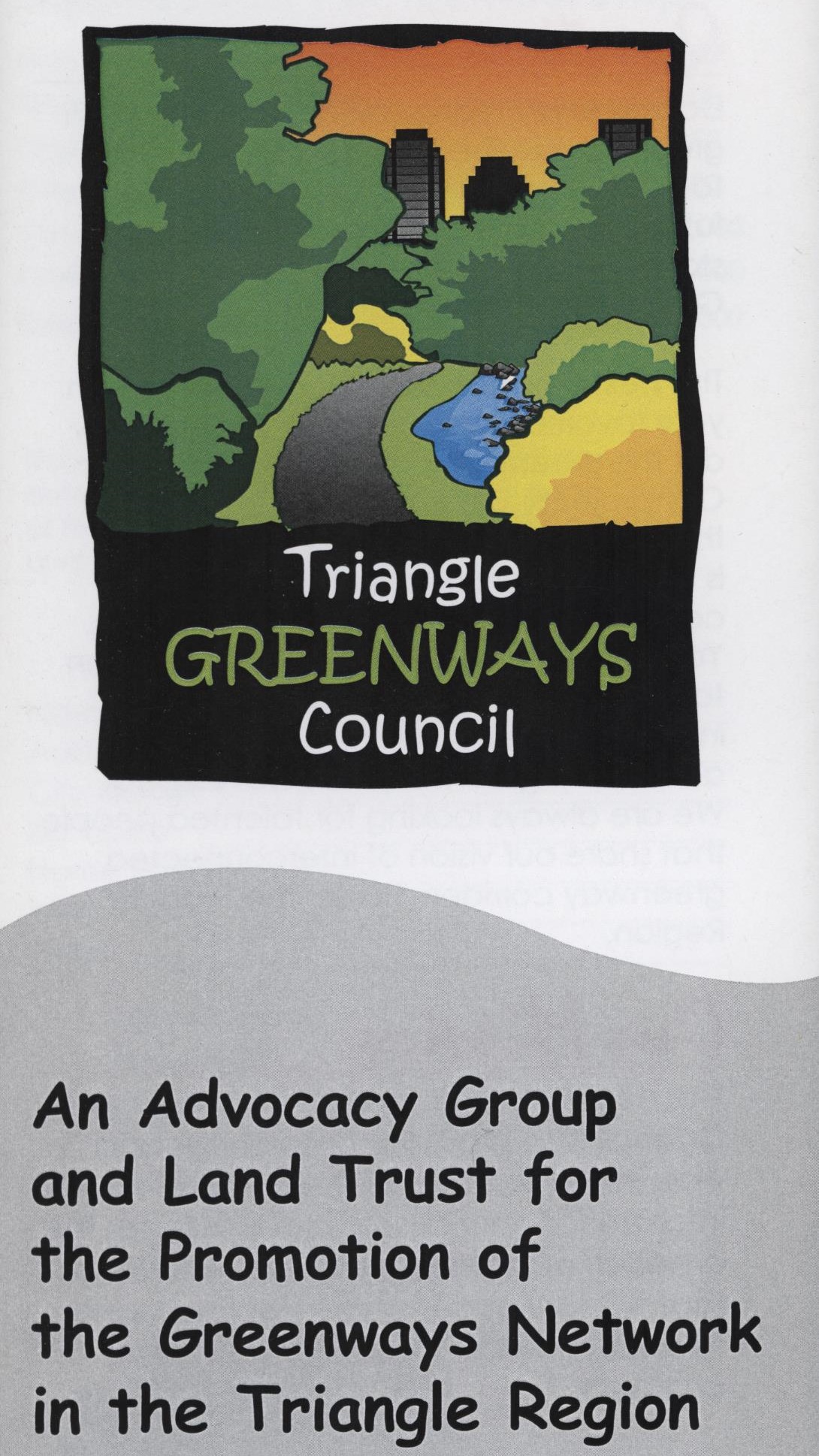
Pamphlet for the Triangle Greenways Council (MC 00503, Box 93, Folder 1)

Pamphlet for the Triangle Greenways Council (MC 00503, Box 93, Folder 1)
The Special Collections Research Center is pleased to announce that an updated finding aid for the Triangle Greenways Council Records is now available online. These new materials include Triangle Greenways Council Board meeting minutes, publications, other records from the organization, and some documents on related organizations like the Friends of the Mountains-to-Sea Trail.
Special thanks to Olivia Bonnette, Matthew Angel, Ellie Beal, Destiny Clayton, Jocelyn Romero Regules, Trey Kaufman, and Cathy Dorin-Black for their work on this addition.
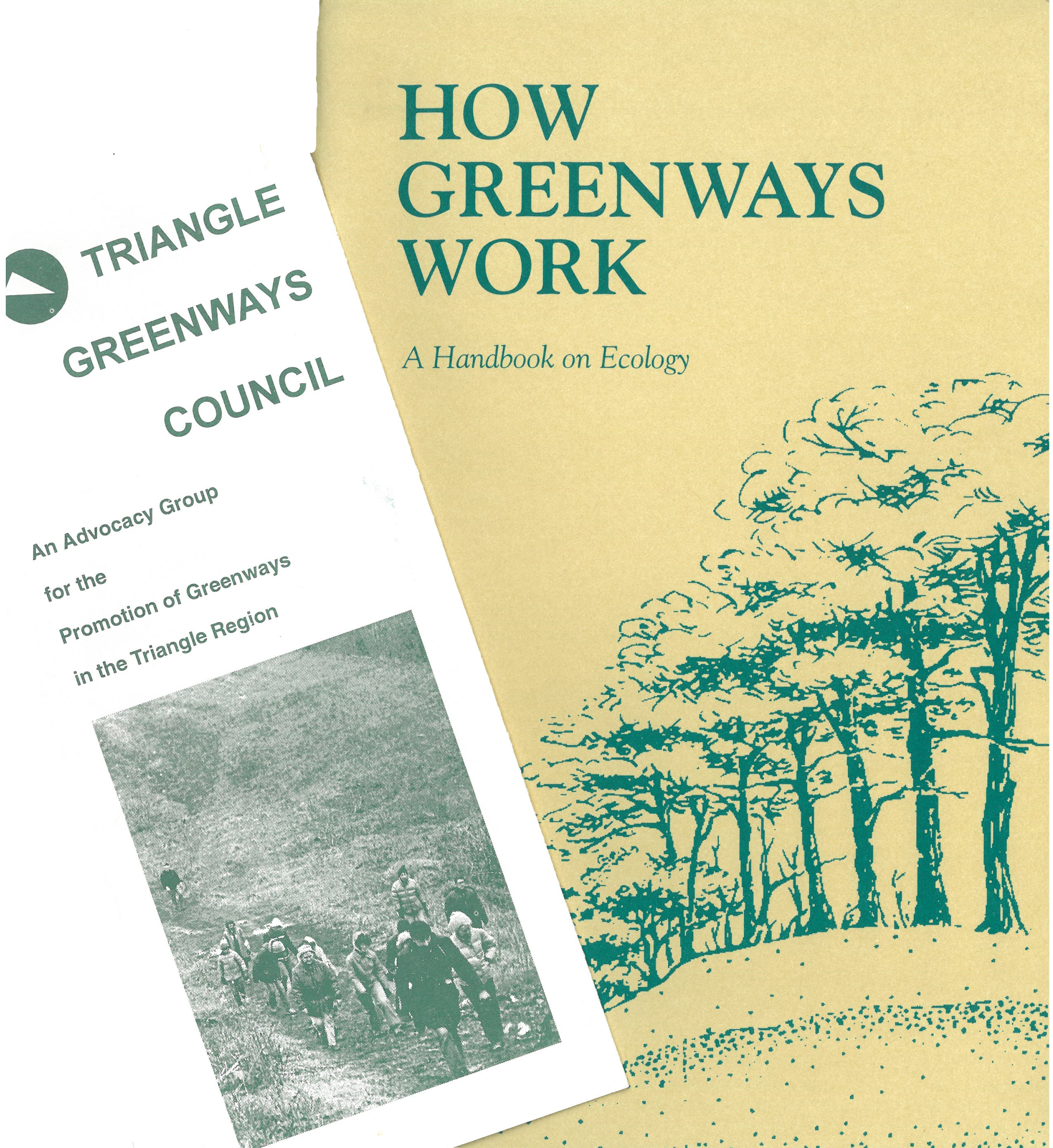
Greenways are undeveloped land preserved for environmental protection or recreational use.
The Triangle Greenways Council promotes the use and expansion of greenways throughout the Triangle Region of North Carolina. Part of their mission involves acquiring private and public land through donations and grant-funded purchases. The Council also works with local municipalities and governments on the placement of new trails and greenway facilities. To date, the Triangle Greenways Council has acquired and preserved over 750 acres of undeveloped land. Aside from acquiring land, the Council works to educate the public through seminars and festivals, and implements public service projects.
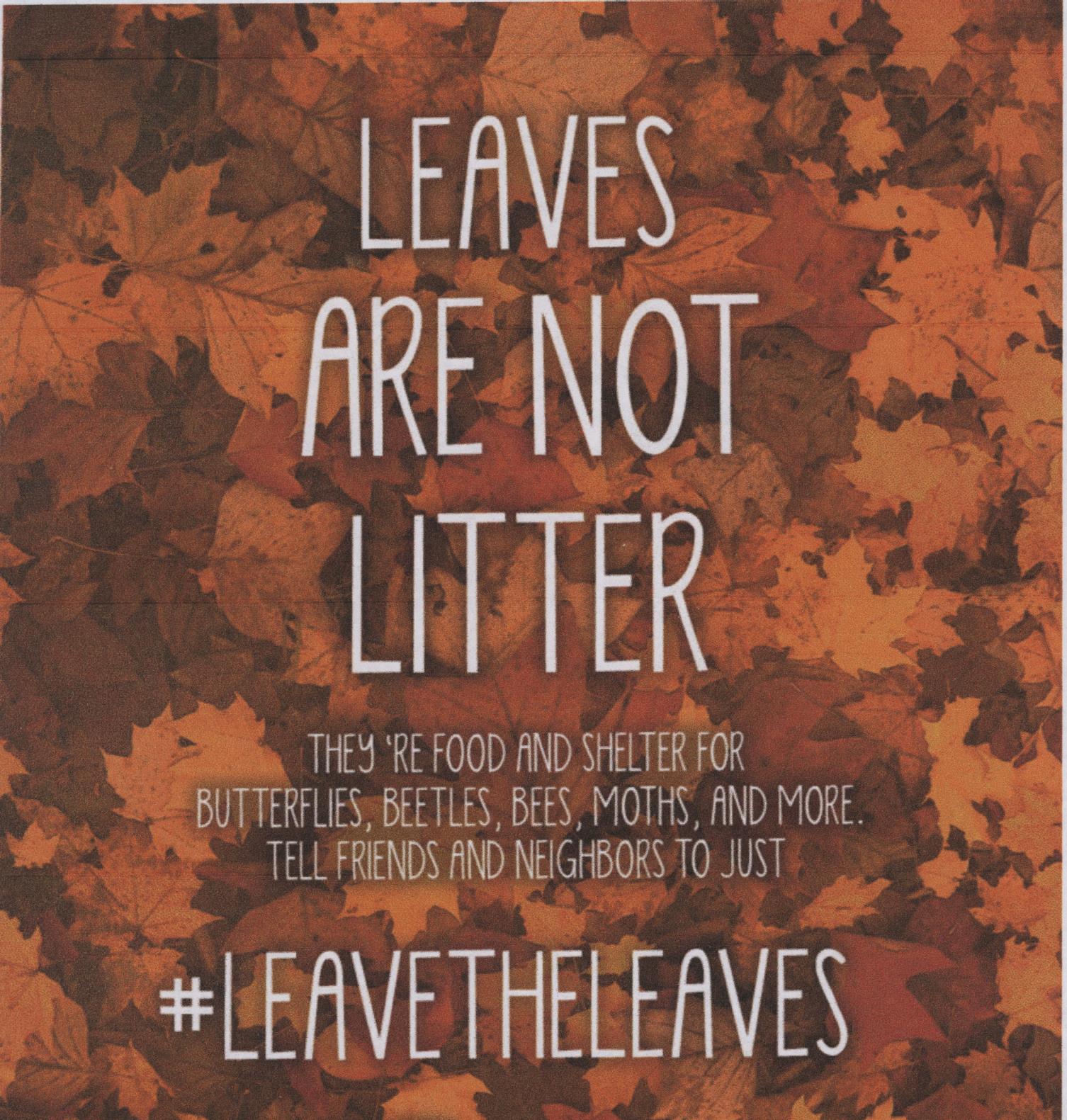
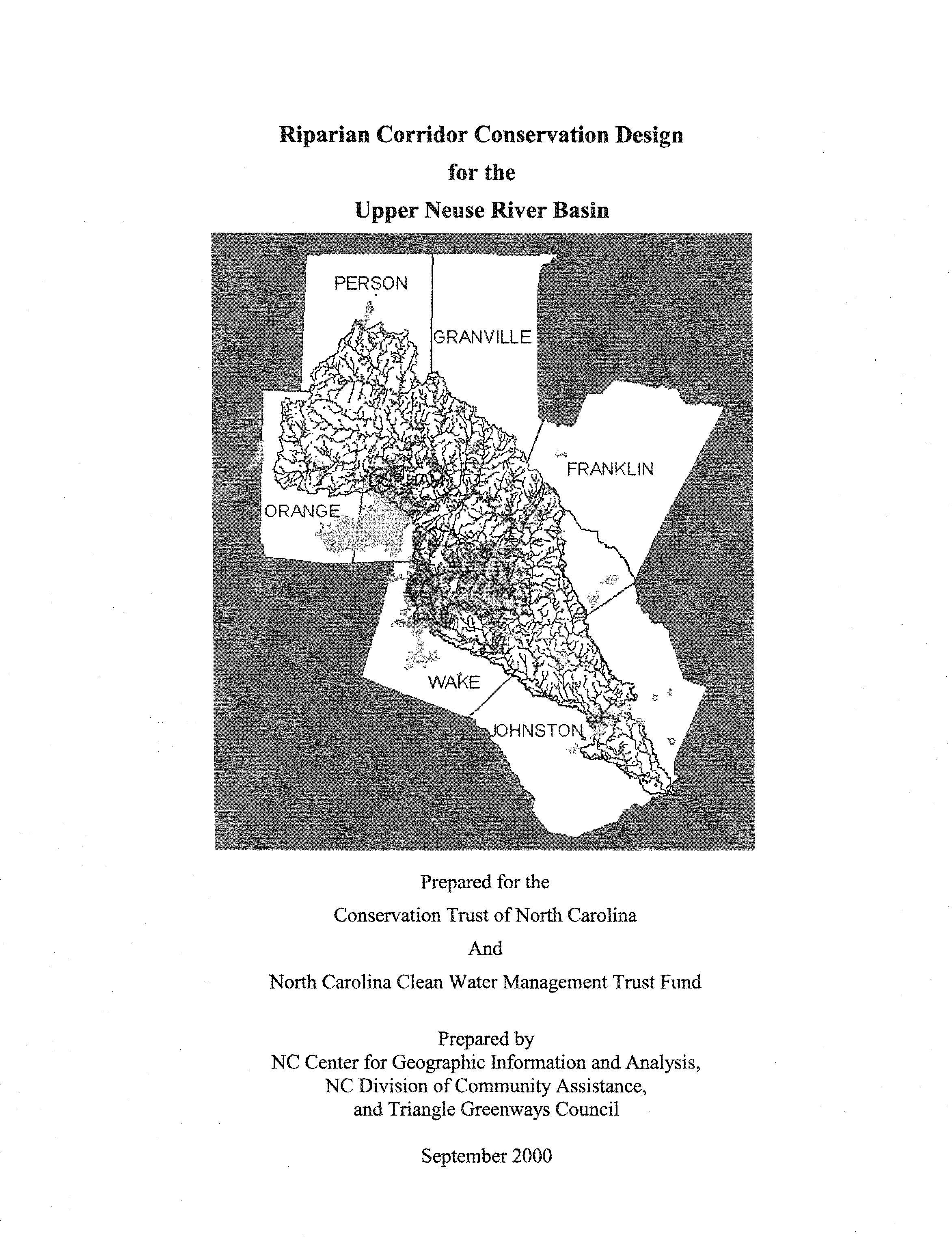
The new materials include maps and other information about properties held by the organization. Some of these properties are along Raleigh’s Walnut Creek, and were acquired through funds secured from the North Carolina Clean Water Management Trust Fund.
This fund, now known as the North Carolina Land and Water Fund, has conserved over half a million acres of land since its creation in 1996. Other materials discuss working with the Upper Neuse Clean Water Initiative, whose focus is on protecting the health and long-term safety of drinking water for all Upper Neuse River Basin communities.
Many of the publications that we added to this collection discuss the broader effects that plants can have on the climate as well as on the overall environment, especially when used in heavily populated urban spaces. Some materials, like the publication "Functional Use of Plant Materials", cover the role(s) that plants can play in our built environments, from methods of climate control (below) to beautifying the landscape. Other publications discuss stream restoration, the importance of urban waterways, and guidance for coastal development.
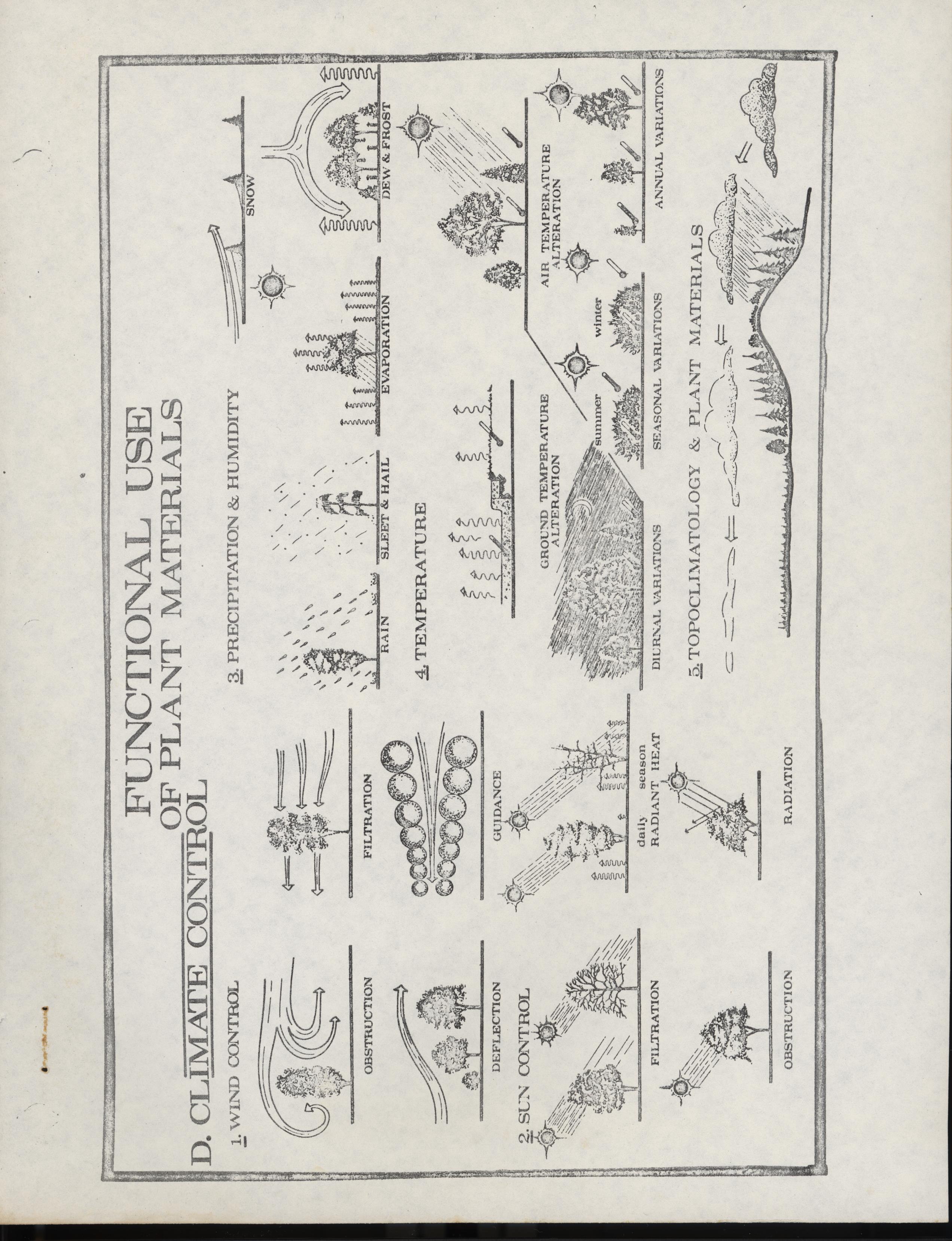

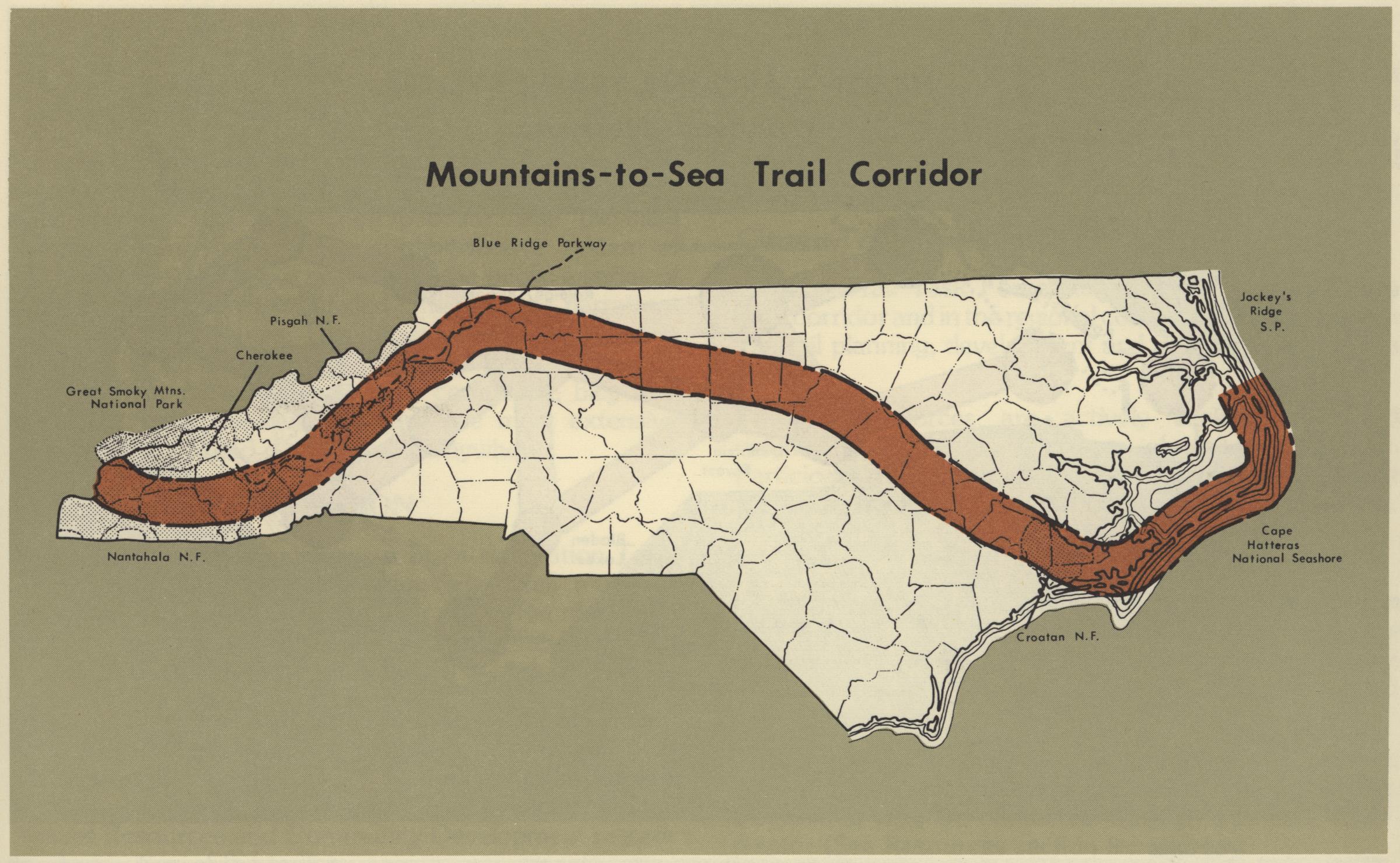
To learn more about greenways and/or greenways in North Carolina, you may wish to check out the East Coast Greenway Alliance Records, the William L. Flournoy Jr. Papers, or the Greenways Incorporated Records and Charles A. Flink Papers. For more information about related organizations, check out the Mountains-to-Sea Trail Records, the North Carolina Rail-Trails Records, or the North Carolina Trails Association Records.
If you have any questions or are interested in viewing Special Collections materials, please contact us at library_specialcollections@ncsu.edu or submit a request online. The Special Collections Research Center is open by appointment only. Appointments are available Monday–Friday, 9am–6pm and Saturday, 1pm–5pm. Requests for a Saturday appointment must be received no later than Tuesday of the same week.